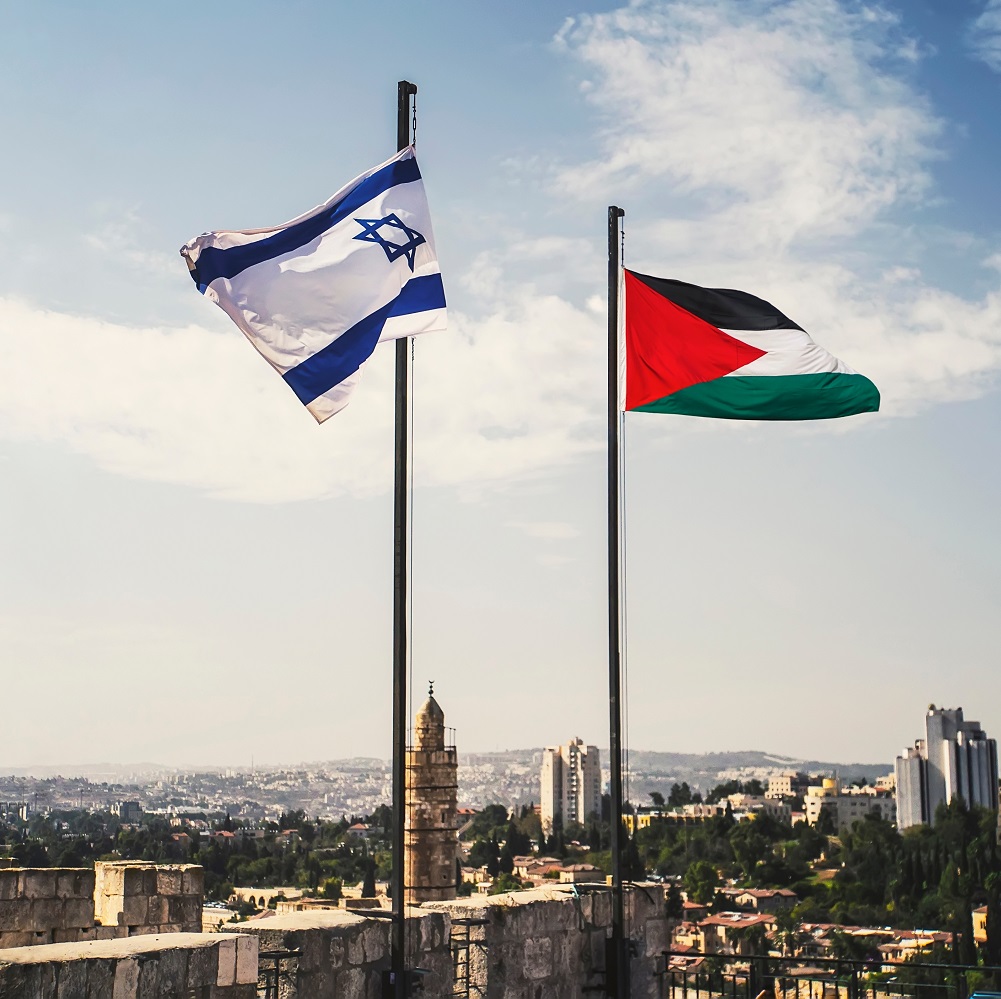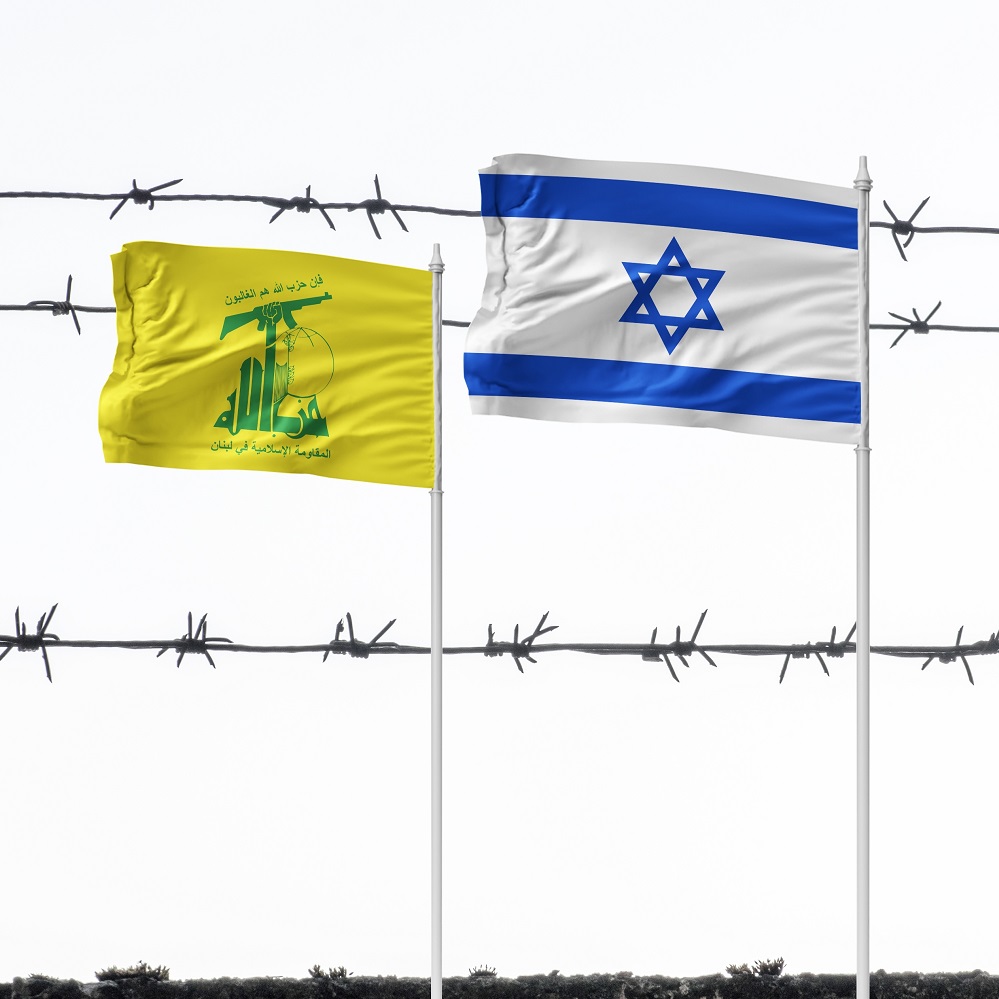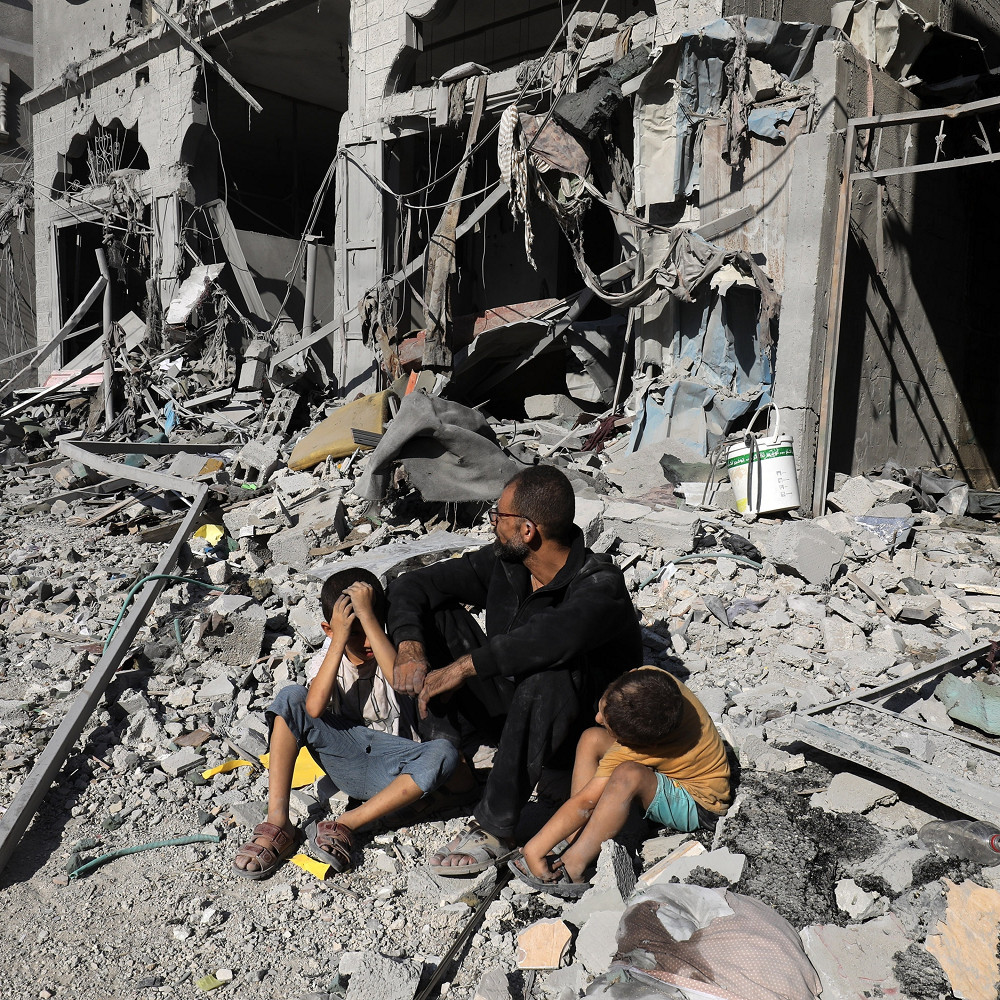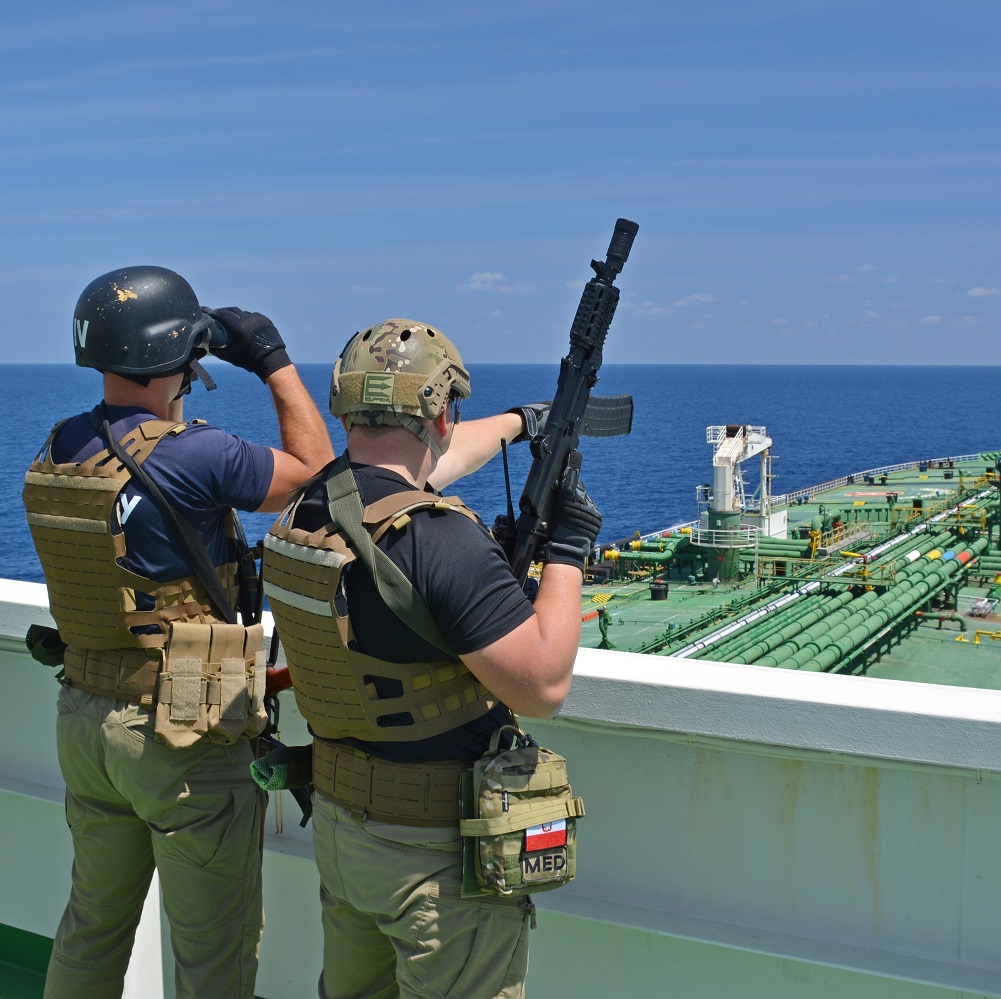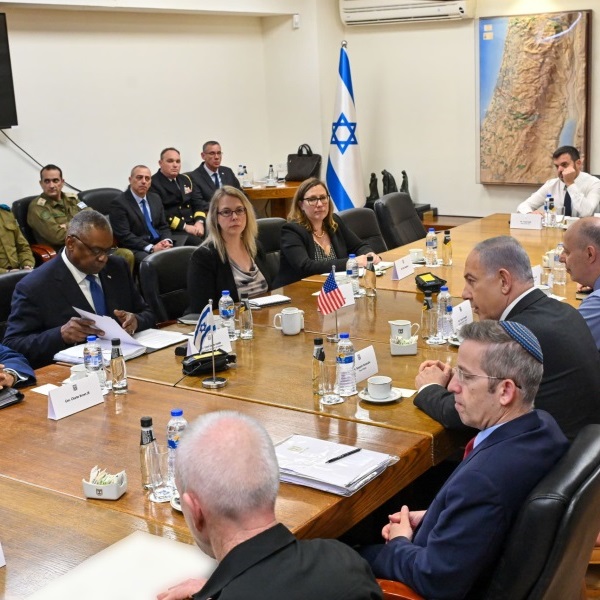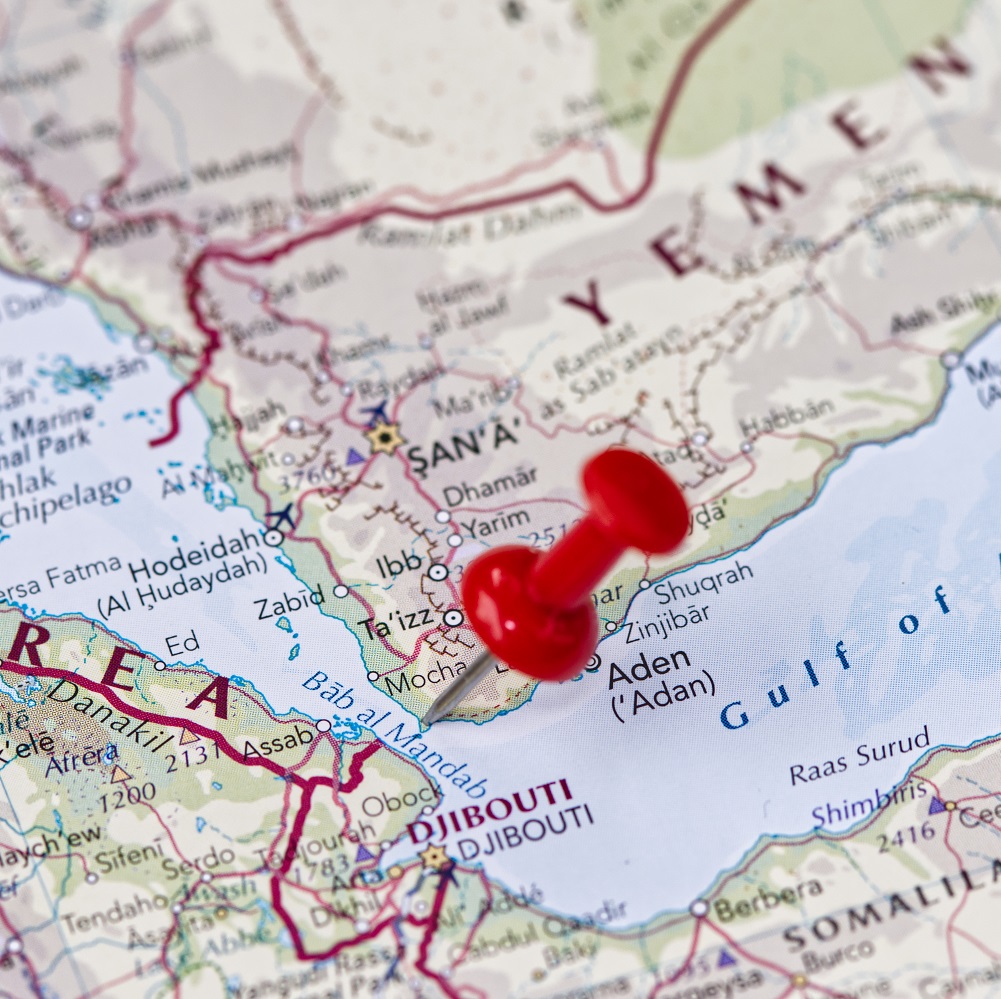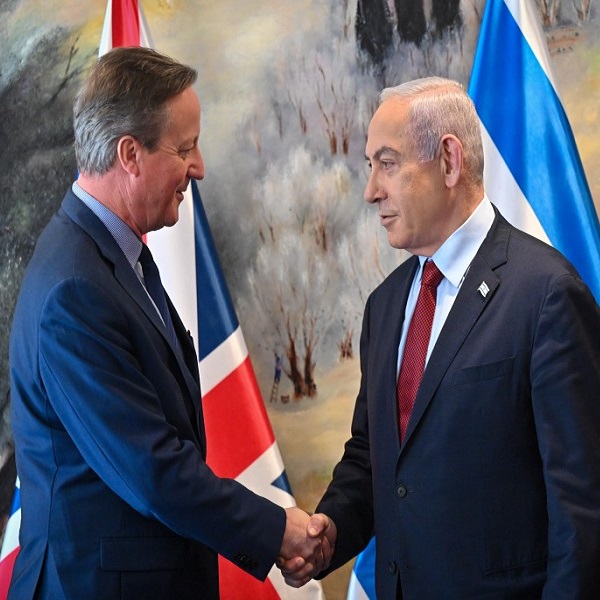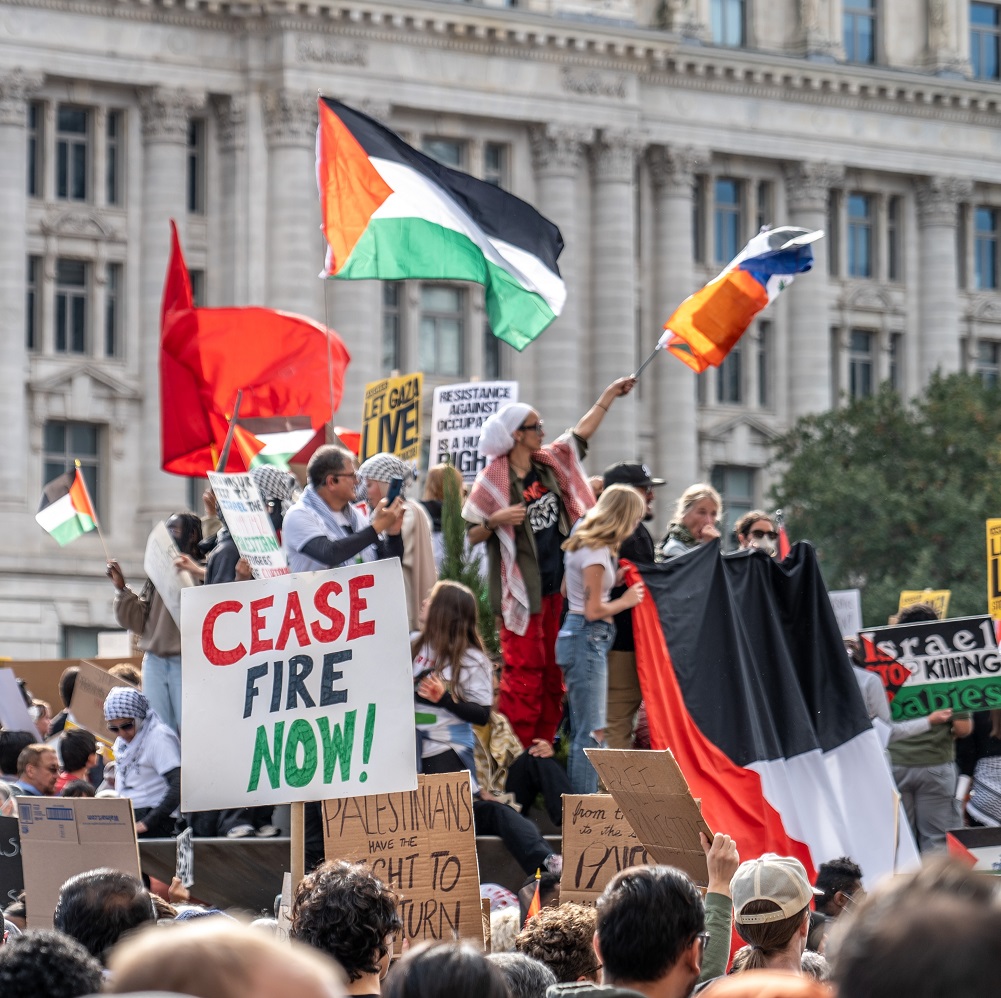Political Analysis: A World Without Hamas?!!
by Mohsen Mohammad Saleh
From the start of Operation Al-Aqsa Flood, Israeli calls to crush Hamas have escalated, joined by major Western powers calling for the end of Hamas’ rule in Gaza Strip (GS) and its exclusion from the Palestinian decision-making circle. This has coincided with a global campaign vilifying Hamas, accusing it of terrorism, and seeing it as an obstacle to achieving peace and stability in the Middle East. Arab and regional forces have also actively worked against Hamas, affecting their external relations and its security and developmental strategies. Arab leaders and officials have openly discussed this in closed rooms with Western leaders or with figures who later revealed it in the media, such as Dennis Ross and Thomas Friedman.A World Without Hamas:So, these powers believe that Hamas is the problem, and that its leadership is now sought after, with the solution to regional stability being the exclusion of Hamas. Let’s deal with the hypothesis of getting rid of Hamas calmly and objectively. We should ask those who have filled the world and the media against Hamas some simple questions. Hamas emerged as a movement in 1987, nearly forty years after the decision to partition Palestine and the 1948 war and the establishment of the Israel. What have peace-loving powers done during these forty years to grant Palestinians their rights, end Israeli occupation, and implement United Nations (UN) resolutions?! Was Hamas the obstacle and the problem?! After more than thirty years of the Oslo Accords signed in 1993, which the Palestine Liberation Organization leadership hoped would establish an independent Palestinian state in the West Bank (WB) and GS within five years. Who disrupted the implementation of the agreement? Who destroyed the peace process? Who destroyed the two-state solution? Who turned the Oslo experience and the peace process into a catastrophe for the Palestinian people? Wasn’t it the Israeli side who doubled the number of settlers, seized land, Judaized holy sites, and turned the Palestinian Authority (PA) into a functional security entity serving the occupation? After more than twenty years of the (Saudi) Arab Peace Initiative launched in 2002, wasn’t it the Israeli occupation that ignored and thwarted it, leaving it on the shelf, if not in the trash bin?! And, assuming there was no Hamas throughout this period, would the Israelis have granted Palestinians full sovereignty to the WB and GS? Or is the problem deeply rooted in the essence of Zionist ideology and the dominant Israeli mindset that rejects this?! For example, during the period 25/2–3/3/1996, after several operations carried out by Hamas in retaliation for the assassination of Yahya ‘Ayyash that shook Israel, major Western powers, Israel, the PA, and several Arab and world countries rushed to hold an international conference titled the Summit of Peacemakers, on 13/3/1996, in Sharm El Sheikh, Egypt, to support the peace process and combat “terrorism.” The PA, in collaboration with the Israeli occupation and the United States, using all means of suppression and brutality, launched a smear campaign against Hamas in an attempt to eradicate anything related to the Islamic resistance movement. Practically, the PA spared no effort and succeeded, to a large extent, in dismantling most, if not all, of the resistance cells, and largely managed to strike the organizational structure of Hamas and stifle its popular base. Then what?! In the following four years, the situation stabilized for the PA, and its nine Security Forces met all Israeli demands and achieved the targeted “quality standards.” However, Israel, on the other hand, did nothing but continue its plans of Judaization and settlement, using the settlement process as a cover to penetrate the Arab and Muslim region and normalize relations with it. The matter culminated in the failure of the Camp David II negotiations in July 2000. And the question that arises is, during that period, practically a “world without Hamas,”’ why was the promised peace settlement not achieved? Therefore, Yasir ‘Arafat lost any hope of realizing the dream of the Palestinian state he aspired to. This frustration played a fundamental role in pushing ‘Arafat to support the Al-Aqsa Intifadah that erupted in September 2000, with the participation of Fatah elements, both popularly and militarily. As for the second result, it is that Hamas, in a very short time, regained its strength, advanced to lead armed resistance, and gained unprecedented popular support, culminating in its overwhelming victory in the 2006 Legislative Council elections. Attempts to create a “world without Hamas” by the PA have been repeated since 2007 for many years in WB. Hamas has suffered (and still suffers) from the PA’s repression (along with Israeli repression and US expertise), its pursuit, closure of its institutions, and the targeting of its organizational structure. So, what was the result after 16 years?! The result is that Hamas is the most popular faction in WB, or at least the fundamental competitor to Fatah!! Otherwise, why did the Fatah leadership shy away from the election obligations and the putting the Palestinian house in order, in the spring of 2021, and continues to evade them until now?! Even in GS, the suffocating blockade and participation in five destructive wars over 16 years have only increased Hamas’s strength and popularity!! Therefore, the question directed at Israel is: If WB is under your direct and indirect occupation, and you have failed over 36 years to uproot Hamas, even with a Palestinian partner, and it still maintains its popularity; what do you expect even if you manage to reoccupy GS? Why insist on “trying the tested” and “reinventing the wheel”?Will of the Occupation… or the Will of the People?!There is a fundamental question that arises: Does a “world without Hamas” reflect the will of the occupation and its allies, or the will of the Palestinian people?! Therefore, does Israel and its allies have the right to guardianship over the Palestinian people? Is it their right to impose their standards on the Palestinian people in choosing their representatives and leaders? What audacity and arrogance is it that the enemy decides the form and specifications of the leadership of a people who are victims of occupation?! The second fundamental question is, why do the Western world, Arab normalizers and their allies seek to adapt the situation in Palestine according to the desires and standards of the occupation and in a way that pleases Israel? Instead of working according to hundreds of international resolutions and the inherent rights of peoples to self-determination, to adapt the situation in favor of ending the occupation and exerting all pressures on it to force it to do so?! Therefore, the persistence of Israel as a “state above the law,” securing its occupation, and ensuring its continued subjugation of another people is the abnormal situation that must be eliminated. Hence, if the Palestinian people choose Hamas as an expression of their free will, the correct approach is to respect the will of the people, not the will of the occupation. Hamas governed GS according to the majority elected by the Palestinian people, and it did not come with an Israeli or US permission or approval. Thus, it remains whether they are satisfied or unsatisfied; this is not their business.Realistic Indicators:Indicators show that after more than 75 days of the brutal Israeli aggression on GS, Hamas’s popularity remains high and continues to rise, and the Palestinian environment still rallies around it inside and outside Palestine. The methods of massacres and atrocities have deepened the desire of the Palestinian people for revenge and for making more sacrifices to end the occupation. Thus, Israel’s mad desire to reach a “world without Hamas” has only strengthened Hamas and elevated its status among Palestinians, Arabs, Muslims and the world as a movement of resistance and liberation. This happened at a time when the ugly face of the occupation was increasingly exposed. The latest opinion polls released by the Palestinian Center for Political and Survey Research on 13/12/2023 show a rise in Hamas’s popularity and more support for the resistance line, with an overwhelming majority demanding the resignation of ‘Abbas. Moreover, if there were a referendum on the most popular factions or parties in the Arab and Muslim world, Hamas might win by a comfortable majority, gaining a position that no other Palestinian faction, party, or Arab or Muslim leader could dream of. Perhaps Abu ‘Ubaidah, whose name and face we do not know, would receive far more votes than many leaders and presidents whose names echo in the media day and night!!Hamas and the International Community:If the world were without Hamas, would it be better for the international community to support the Palestine issue? In fact, the objective study of the course of the world’s interaction with the Palestine issue, its prominence on the international agenda, and the increasing percentage of votes for it since the emergence of Hamas until now (1987–2023), indicates that whenever there is resistance, an atmosphere of uprising, confrontation with the occupation and an ascendance of Hamas’s role, this voting percentage increases in the UN and its institutions, as well as in the official and popular global interaction. Conversely, whenever the trend of peace settlement and the imposition of a state of “calm” prevails, international interest and support, as well as voting percentages in the UN, decrease. Israel exploits this to further its settlement and Judaization, moving towards closing the Palestinian file and imposing its visions that erase the rights of the Palestinian people in their land and holy sites. Researchers, such as Prof. Dr. Walid ‘Abd al-Hay, have written about this phenomenon.Hamas and “Terrorism”:Several Western countries accuse Hamas of “terrorism” and killing civilians, seeing the need to delegitimize it internationally. However, for the Palestinian people, Arabs, Muslims and everyone who believes in the right of the Palestinian people to liberate their land, Hamas is seen as a moderate, open Islamic movement, a national liberation movement whose existence is linked to confronting Zionist terrorism and ending the occupation. Crushing and sidelining Hamas will not eliminate the essence of the liberation idea; it is an inherent and sacred right for any people with dignity seeking to determine their destiny on their own. Accusing Hamas of terrorism is merely a tool to prevent any legitimate resistance against the occupation. Regarding the issue of targeting civilians, perhaps there is no room for discussion here, but historically, it suffices to note that since its inception, Hamas has sought to focus on military objectives. After the Ibrahimi Mosque massacre carried out by a Zionist called Baruch Goldstein in 1994, Hamas offered to avoid killing civilians from both sides, but the Israeli occupation ignored it and continued its massacres. Documented statistics indicate that Israel has killed more than 11 thousand Palestinian, the overwhelming majority being civilians, from 2000 until just before the recent Operation Al-Aqsa Flood on October 7th. The whole world has witnessed the Israeli massacres in GS… Let’s first talk about the “Zionist terrorism.” The moderate Islamic civilizational ideology is the most powerful, deep and widespread school of thought in Palestine, the Arab world and the Muslim world. Palestine, with its great religious significance and heritage, occupies a central place in the hearts of every Arab and Muslim. This school of thought, even if Hamas were hit, has the potential to reproduce a stronger and wider movement. It is associated with a just battle worth sacrificing and dying for, linked to the status of Palestine and not necessarily to the existence of Hamas. It is an entrenched ideology in Palestinian society and the Ummah (Muslim nation). It is foolish to ignore it and insist on going against the tide of history after thirty years of British colonialism and seventy-five years of Zionist colonization, using the same mechanisms that have proven their failure. *** The clear result of this discussion is that those who talk about a world without Hamas do not mean Hamas alone, but they aim to target the resistance of the Palestinian people and their vibrant and free forces. They want a world conducive to the continuation of occupation, injustice and the subjugation of the Palestinian people… They want Palestinian people without will, a people dancing to the tunes of the occupation, a people without claws and teeth, which will never happen!! Instead, global efforts should focus on creating a world without colonization… without occupation… without a Zionist settler-colonial expansionist project. It should be a world that respects the free will of peoples and pressures Israel, not those fighters for their freedom. It should be a world that stops evading the obligation that will happen sooner or later, which is the liberation of Palestine and ending the occupation.










